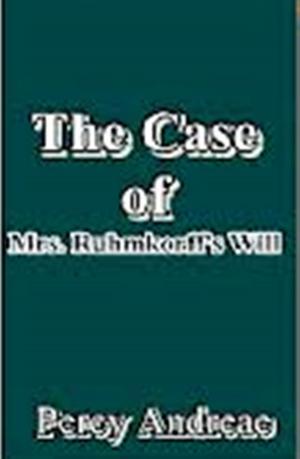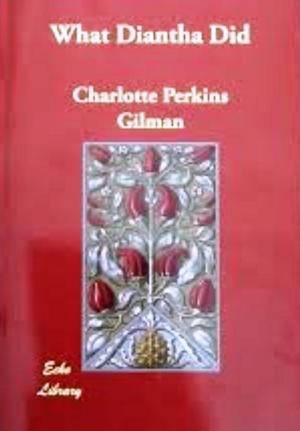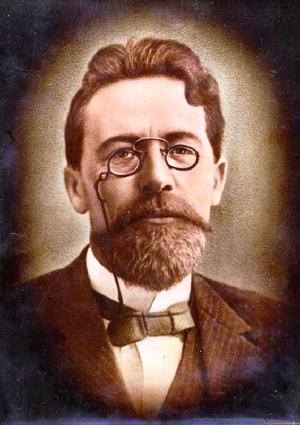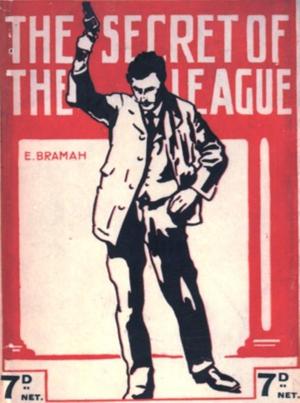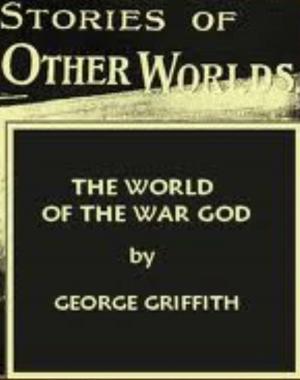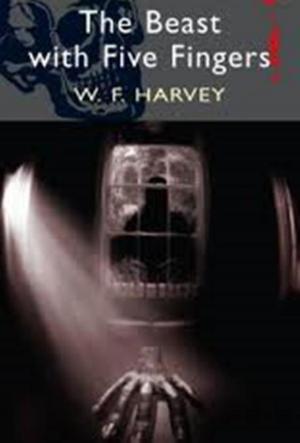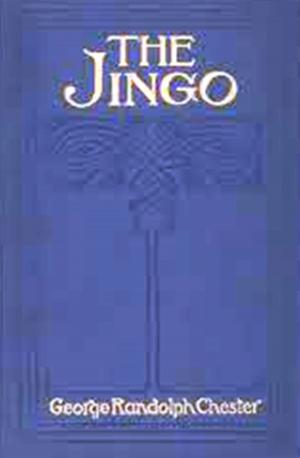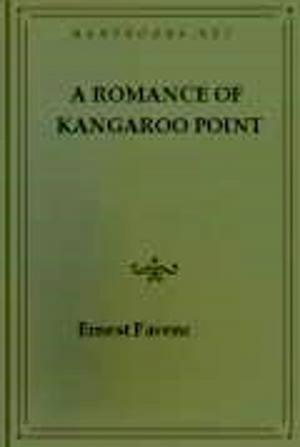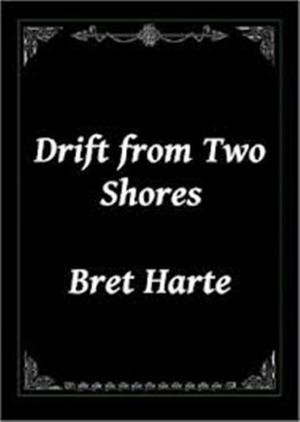| Author: | Hugh Conway | ISBN: | 1230000148947 |
| Publisher: | WDS Publishing | Publication: | July 8, 2013 |
| Imprint: | Language: | English |
| Author: | Hugh Conway |
| ISBN: | 1230000148947 |
| Publisher: | WDS Publishing |
| Publication: | July 8, 2013 |
| Imprint: | |
| Language: | English |
MY friend Luigi is reckoned one of the finest violin. players of the day. His wonderful skill has made him famous, and he is well known and honored for his talent in every capital in Europe.
If in these pages I call him by another name than the one he has made famous, it is solely on account of a promise he exacted from me, in case I should ever feel tempted to make the following strange experiences, we shared together, public property. I am afraid, nevertheless, that too many will readily identify the man himself with the portrait I am obliged to draw.
Luigi--leaving his professional greatness out of the question--would have been a noticeable man in any company, a man that people would look at and ask not only, "Who is he?" but "What has he done in the world?" knowing that men of his stamp are seldom sent upon this scene to live an ordinary everyday life. In person he was very tall, standing over six feet. His figure was graceful, and might even be called slight, but had breadth of shoulder enough to tell it was the figure of a strong man; a face with a pale but clear complexion; dark deep-set eyes, with a sort of far-away expression in them; black hair, worn long, after the manner of geniuses of his kind; a high but rugged forehead; a well shaped nose; a drooping moustache; a hand whose long and delicate fingers seemed constructed for their particular mission--violin-playing. Picture all these, and if you enjoy the acquaintance of the musical world, or even if you have been in the habit of attending concerts where stars of the first magnitude condescend to shine, I fear, in spite of my promise of concealing his name, you will too easily recognize my friend.
Luigi's manner in ordinary life was very quiet, gentlemanly, and reposed. He was, in his dreamy sort of way, highly courteous and polite to strangers. Although, when alone with me or other friends he loved, he had plenty to say for himself--and his broken English was pleasant to listen to--in general company he spoke but little. But let his left hand close round the neck of a fiddle, let his right hand grasp the bow, and one knew directly for what purpose Luigi came into the world. Then the man lived and reveled, as it were, in a life of his own making. The notes his craft drew forth were like bracing air to him; he seemed actually to respire the music, and his dreamy eyes awoke and shone with fire. He did that rare thing--rare indeed, but lacking which no performer can rise to fame--threw his whole soul into his playing. His manner, his very attitude as he commenced, was a complete study. Drawing himself up to every inch of his height, he placed the violin--nestling it, I may say--under his chin, and then taking a long breath of what appeared to be anticipatory pleasure, swept his magician's wand over the sleeping strings, and waking them with the charmed touch, wove his wonderful spell of music. The moment the horse-hair came in contact with the gut, the listener knew he was in the presence of a master.
Luigi had come to London for the season, having, after much negotiation and persuasion, accepted an engagement at a long series of some of the best, if cheapest and most popular, concerts held in London. It was his first visit to England: he had ever disliked the country, and believed very little in the national love for good music, or in the power of appreciating it when heard. He disliked, also, the trumpeting with which the promoters of the concerts heralded his appearance. Although his fame was great already throughout the Continent, he dreaded the effect of playing to an unsympathetic audience. His fears were, however, groundless. Whether the people liked and understood his music and style of playing or not, they at least appeared to do so; and the newspapers, one and all, unable to do things by halves, went into raptures over him. They compared him with Paganini, Ole Bull, and other bygone masters, and their comparisons were very flattering. Altogether, Luigi was a great success.
I met him on two occasions at the houses of some friends of mine, who are in the habit of spending much time, trouble, and some money on that strange sport, lion-hunting. His concerts were held, I think, on two evenings in every week; so he had time at his disposal, and was somewhat sought after. We were introduced, and I took a liking to the quiet, gentlemanly celebrity, who, different from many others whose names are in the mouths of men, gave himself no airs, nor vaunted, by words or manner, the "aristocracy of talent". I could make shift to converse with him fairly enough in his own soft language; so that upon my meeting him the second time, he expressed his pleasure at again encountering me. A few days afterwards we met by chance in the street, and I was able to extricate him from some little difficulty, into which his imperfect knowledge of English and of English ways had betrayed him. Then our acquaintance ripened, until it became friendship; and even at this day I reckon him amongst the friends I hold the dearest.
MY friend Luigi is reckoned one of the finest violin. players of the day. His wonderful skill has made him famous, and he is well known and honored for his talent in every capital in Europe.
If in these pages I call him by another name than the one he has made famous, it is solely on account of a promise he exacted from me, in case I should ever feel tempted to make the following strange experiences, we shared together, public property. I am afraid, nevertheless, that too many will readily identify the man himself with the portrait I am obliged to draw.
Luigi--leaving his professional greatness out of the question--would have been a noticeable man in any company, a man that people would look at and ask not only, "Who is he?" but "What has he done in the world?" knowing that men of his stamp are seldom sent upon this scene to live an ordinary everyday life. In person he was very tall, standing over six feet. His figure was graceful, and might even be called slight, but had breadth of shoulder enough to tell it was the figure of a strong man; a face with a pale but clear complexion; dark deep-set eyes, with a sort of far-away expression in them; black hair, worn long, after the manner of geniuses of his kind; a high but rugged forehead; a well shaped nose; a drooping moustache; a hand whose long and delicate fingers seemed constructed for their particular mission--violin-playing. Picture all these, and if you enjoy the acquaintance of the musical world, or even if you have been in the habit of attending concerts where stars of the first magnitude condescend to shine, I fear, in spite of my promise of concealing his name, you will too easily recognize my friend.
Luigi's manner in ordinary life was very quiet, gentlemanly, and reposed. He was, in his dreamy sort of way, highly courteous and polite to strangers. Although, when alone with me or other friends he loved, he had plenty to say for himself--and his broken English was pleasant to listen to--in general company he spoke but little. But let his left hand close round the neck of a fiddle, let his right hand grasp the bow, and one knew directly for what purpose Luigi came into the world. Then the man lived and reveled, as it were, in a life of his own making. The notes his craft drew forth were like bracing air to him; he seemed actually to respire the music, and his dreamy eyes awoke and shone with fire. He did that rare thing--rare indeed, but lacking which no performer can rise to fame--threw his whole soul into his playing. His manner, his very attitude as he commenced, was a complete study. Drawing himself up to every inch of his height, he placed the violin--nestling it, I may say--under his chin, and then taking a long breath of what appeared to be anticipatory pleasure, swept his magician's wand over the sleeping strings, and waking them with the charmed touch, wove his wonderful spell of music. The moment the horse-hair came in contact with the gut, the listener knew he was in the presence of a master.
Luigi had come to London for the season, having, after much negotiation and persuasion, accepted an engagement at a long series of some of the best, if cheapest and most popular, concerts held in London. It was his first visit to England: he had ever disliked the country, and believed very little in the national love for good music, or in the power of appreciating it when heard. He disliked, also, the trumpeting with which the promoters of the concerts heralded his appearance. Although his fame was great already throughout the Continent, he dreaded the effect of playing to an unsympathetic audience. His fears were, however, groundless. Whether the people liked and understood his music and style of playing or not, they at least appeared to do so; and the newspapers, one and all, unable to do things by halves, went into raptures over him. They compared him with Paganini, Ole Bull, and other bygone masters, and their comparisons were very flattering. Altogether, Luigi was a great success.
I met him on two occasions at the houses of some friends of mine, who are in the habit of spending much time, trouble, and some money on that strange sport, lion-hunting. His concerts were held, I think, on two evenings in every week; so he had time at his disposal, and was somewhat sought after. We were introduced, and I took a liking to the quiet, gentlemanly celebrity, who, different from many others whose names are in the mouths of men, gave himself no airs, nor vaunted, by words or manner, the "aristocracy of talent". I could make shift to converse with him fairly enough in his own soft language; so that upon my meeting him the second time, he expressed his pleasure at again encountering me. A few days afterwards we met by chance in the street, and I was able to extricate him from some little difficulty, into which his imperfect knowledge of English and of English ways had betrayed him. Then our acquaintance ripened, until it became friendship; and even at this day I reckon him amongst the friends I hold the dearest.

